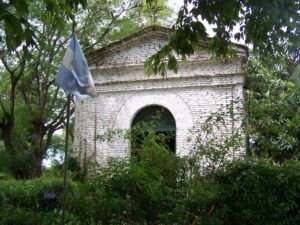AFRICANS AND AFRO-DESCENDANTS IN ARGENTINA
– SAMPLE FACULTY-DIRECTED PROGRAM OVERVIEW –
PROGRAM OVERVIEW
 This program explores the history and culture of Argentina based on the nation-building contributions of African, Indigenous and European populations. Among the subjects covered are colonization, wars of independence, immigration, the notion of class over time, art, social and racial movements, the “disappeared”, national heroes, and the national census. The program deconstructs the notion of Argentina being “the European nation of Latin America” and builds a more comprehensive knowledge of its people. The program looks at the experience of racial and ethnic minorities in Argentina and compares it with that of other countries of the Americas, including the United States. Students will examine the intersections between race, class and nation, both in its historical context and in contemporary society.
This program explores the history and culture of Argentina based on the nation-building contributions of African, Indigenous and European populations. Among the subjects covered are colonization, wars of independence, immigration, the notion of class over time, art, social and racial movements, the “disappeared”, national heroes, and the national census. The program deconstructs the notion of Argentina being “the European nation of Latin America” and builds a more comprehensive knowledge of its people. The program looks at the experience of racial and ethnic minorities in Argentina and compares it with that of other countries of the Americas, including the United States. Students will examine the intersections between race, class and nation, both in its historical context and in contemporary society.
PROGRAM LEARNING OBJECTIVES
- To examine how political movements and other forms of expression shaped the history of Argentina
- To explore how race connects with the ideas of class, nation and belonging
- To understand the role of race and class in the shaping national identity in Argentina
- To analyze comparatively the complex challenges minority populations face in the Americas
ACADEMIC COURSE OFFERING(S)
With the support of the Institute for Advanced Studies in Latin America, the visiting faculty member will teach 1-2 academic courses for home institution credit. Potential course title suggestions may include the following:
- Origins of the Argentine nation: From the colonial era to the present
- The history of Africans and afro-descendants in Latin Amerca
- The African contribution to modern Argentine culture
- Race, class and ethnicity in contemporary Argentina
OPTIONAL LANGUAGE COURSE OFFERINGS
The Institute can provide credit-bearing, Spanish language instruction. Up to nine (9) proficiency levels of Spanish can be offered, for up to 1-credit hour per week (20 contact hours of 55 minutes each). If needed, academic credit may be awarded through the Escuela Superior de Economía y Administración de Empresas (ESEADE).
- Although taught in English, students in this program are recommended to have at least one year of college-level Spanish.
CO-CURRICULAR LEARNING PROGRAMMING
- Academic Field Study.Students are encouraged to develop their own research project in Buenos Aires, researching and documenting the history of current challenges of one of the African communities in Buenos Aires.
- Academic Field Trips. The program will include visits to different historic sites in and around Buenos Aires to better understand the history of the Africans and Afro-descendants in Argentina. These include visits to the Casa Minima, the Academia Porteña del Lunfardo, the Capilla de los Negros in Chascomus, etc. If possible, IEA can arrange an academic field trip to Montevideo in Uruguay, where students can examine these topics comparatively.
- Guest Lectures.The program will include 4-5 invited guest speakers representing the social, economic, cultural and political aspects of this program. Guests may include university professors, researchers, artists, community leaders, activists.
STUDENT SERVICES
- Student Accommodation & Meals.Students can be housed either in hotels or selected host-families. Students selecting host families will be provided with a private bedroom. Although laundry services are not included, linen and towels are changed once a week. Students are served breakfast and dinner six days per week. No meals are provided for those staying in local hotels.
- On-Going Orientation.Students will receive structured and on-going orientation support to improve their intercultural adjustment and cultural learning throughout the program. An initial introduction upon arrival will be followed by a series of cultural workshops and activities designed to facilitate cultural learning.
- Cultural Activities. Students will be invited to participate in a series of cultural activities throughout the program. Activities may include visits to important cultural institutions and specific neighborhoods, and social activities such as local concerts, dance events, asadogrill evenings, wine tasting, etc. Some activities may be oriented toward more advanced speakers of Spanish.
PROGRAM SUPPORT
- Classrooms facilities will be made available at the Institute for classes and guest speakers. All classrooms are air-conditioned and offer whiteboards, Internet access, a PC and overhead projectors. Differently-sized classrooms accommodate either 8, 15 or 25 students. Larger groups may be accommodated nearby at ESEADE University. If needed, the visiting faculty member will be given access to a private office. Students will have access to library and study-room facilities, although English language offerings are limited.
- Program Support.The Institute will appoint a local program coordinator to assist with the smooth operation and facilitation of the program. The institute has a 24-7 hotline for health and safety support, available in English and Spanish.
